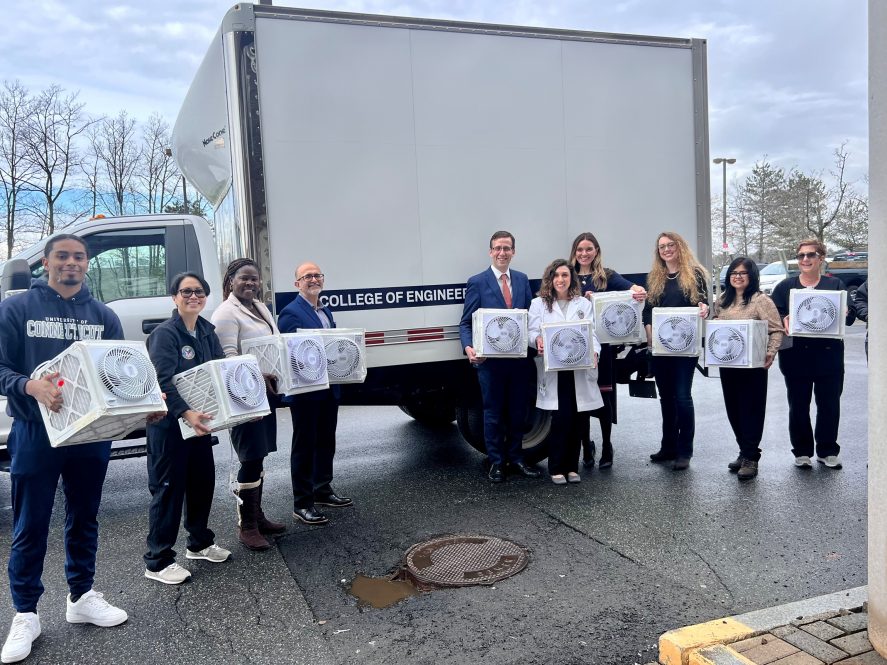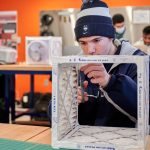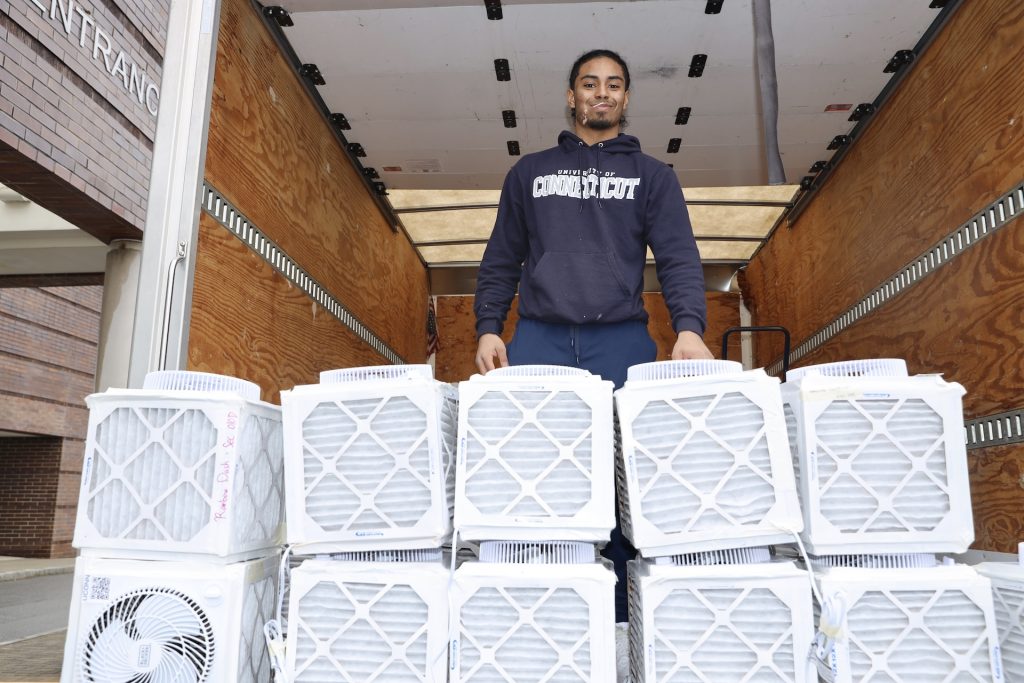 UConn’s cross-campus Indoor Air Quality Initiative gifted 100 miniature, portable air purifiers to the Newington Veteran’s Administration Medical Center to help bring relief to its neurology patients who suffer from headaches.
UConn’s cross-campus Indoor Air Quality Initiative gifted 100 miniature, portable air purifiers to the Newington Veteran’s Administration Medical Center to help bring relief to its neurology patients who suffer from headaches.
The smaller, portable versions of the do-it-yourself (DIY) “Corsi-Rosenthal” air purifiers were built by UConn engineering students as part of their curriculum’s ENGR 1166 class as a public service learning project. These mini air purifiers are only 10″ in size.
On February 23 the “Tiger Team” of UConn students drove a UConn box truck from Storrs and the UConn College of Engineering to the VA to deliver the 100 engineering-student made air purifiers.
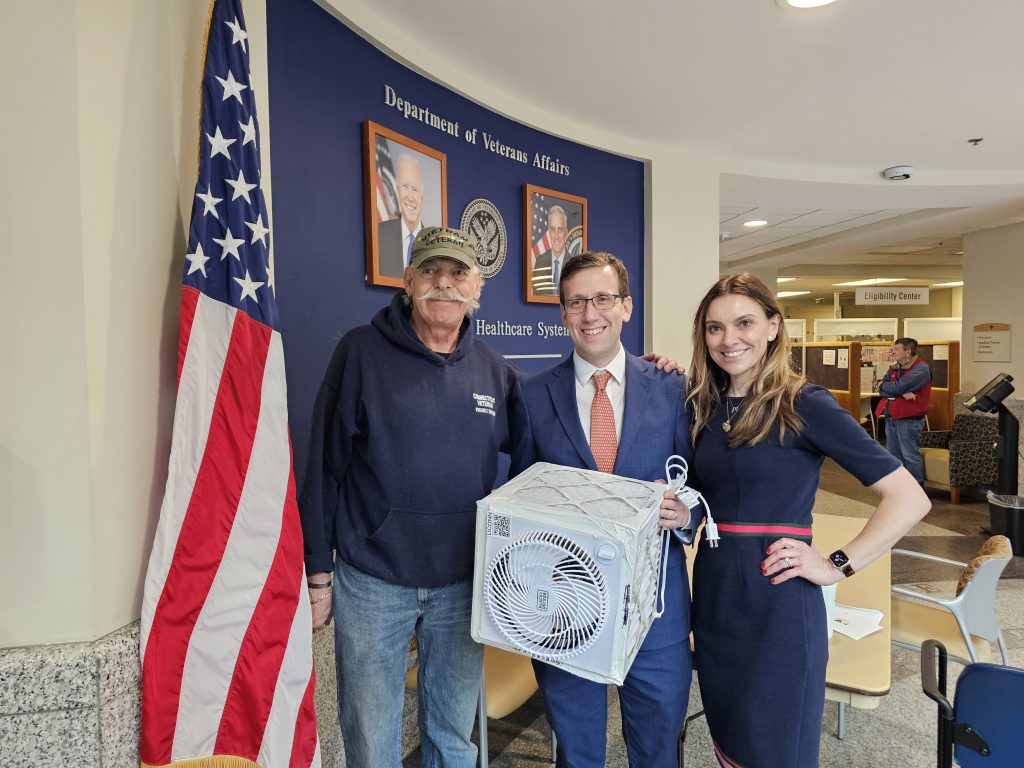
The students were supported at the drop-off donation event by their UConn and UConn School of Medicine faculty including Dr. L. John Greenfield, chair of the Department of Neurology, as well as State Senator Matthew Lesser.
The donation was received by Dr. Ashish Adlahka, director of the VA’s Headache Disorders program and the VA team.
“We are very grateful to UConn engineering students and UConn Health Neurology for your donation of Corsi-Rosenthal air filters, which will help in studying the role of indoor air quality in headache disorders. This could be a significant step towards understanding and mitigating the impact of air quality on veterans’ health,” shared Adlahka of the VA Connecticut Headache Centers of Excellence.
UConn’s hope is that this low-cost, public health intervention air purifier tool will help VA patients in need to reduce the frequency and intensity of their disabling migraine headaches.
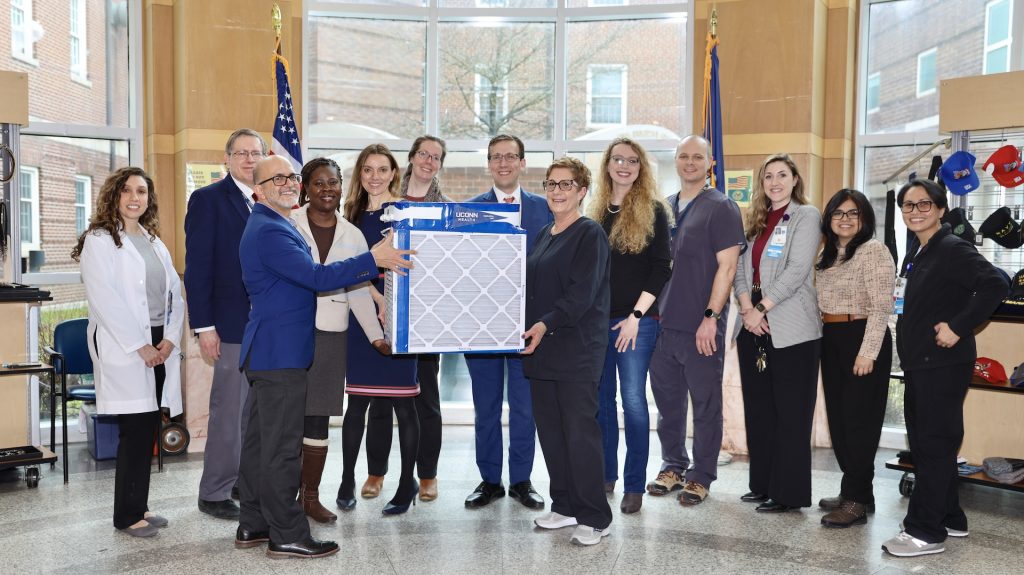 “This is a wonderful example of a UConn cross-campus initiative, joining together UConn students of medicine and engineering from the state’s flagship university with the federal VA program with the end goal of providing support and innovative solutions to debilitating health challenges,” shared Marina Creed, APRN, director of the UConn Indoor Air Quality Initiative and a neuroimmunology nurse practitioner at UConn Health.
“This is a wonderful example of a UConn cross-campus initiative, joining together UConn students of medicine and engineering from the state’s flagship university with the federal VA program with the end goal of providing support and innovative solutions to debilitating health challenges,” shared Marina Creed, APRN, director of the UConn Indoor Air Quality Initiative and a neuroimmunology nurse practitioner at UConn Health.
The state and federal collaboration between UConn Health and the VA will also allow for medical students and residents in training to track results of this health care quality initiative to show research results on how they can improve patient outcomes.
